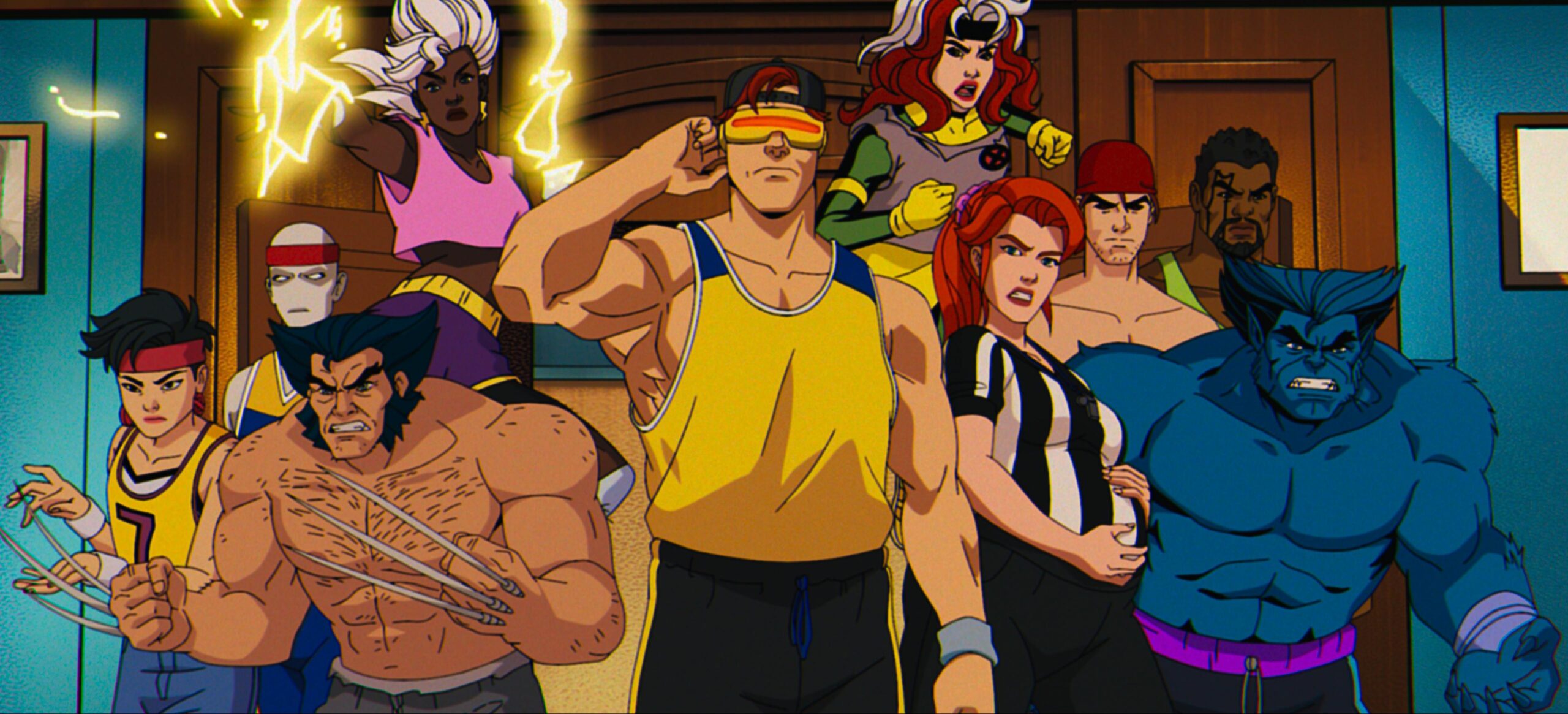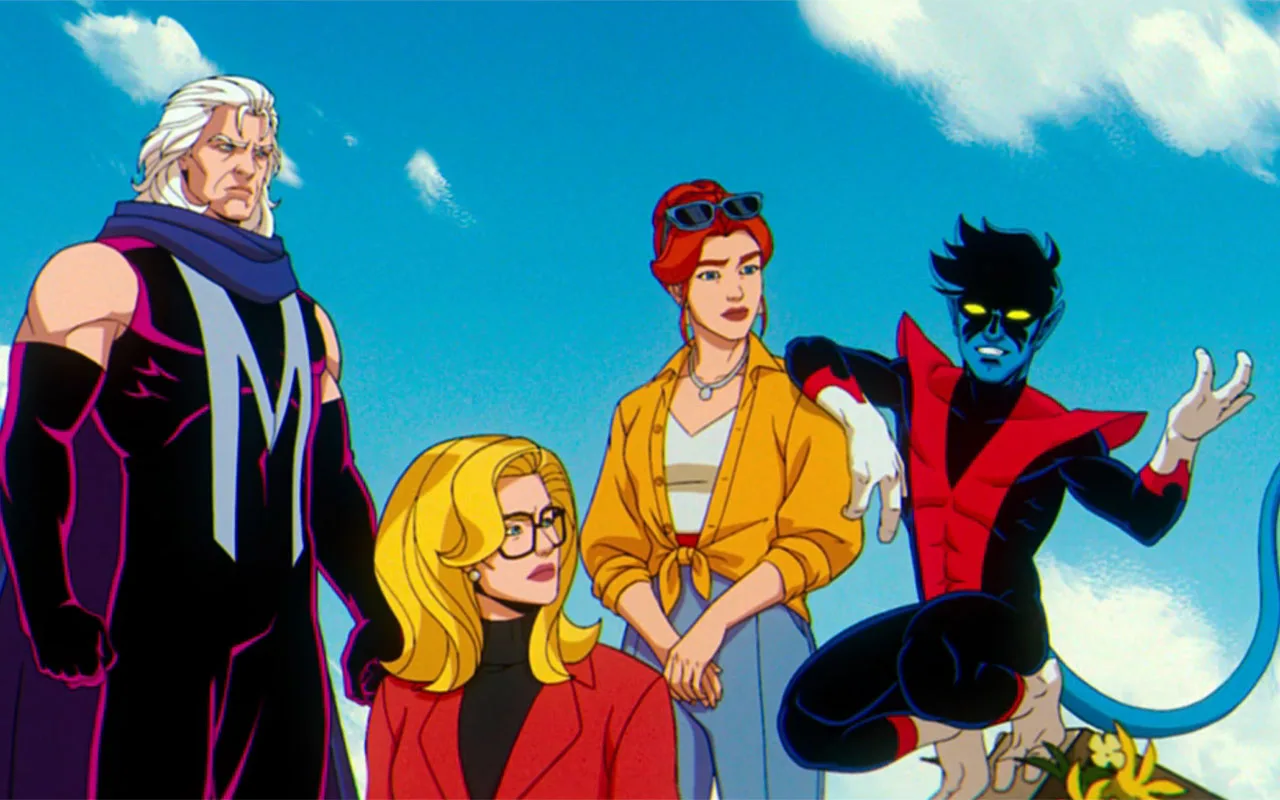For adults like myself who grew up in the 90s, one of the series we’ll never forget is X-Men. The 90s animated series, which Marvel is thriving on today, were truly remarkable in their time. If I eagerly rushed to see the X-Men movie in 2000, it was undoubtedly because of the X-Men animation I watched on television. With such a deep-seated love for the past, Marvel’s promise to bring back the old sparked immense curiosity in me. However, there was also a lurking fear. The possibility of Marvel facing storytelling issues in recent years resurfacing, coupled with the departure of producer Beau DeMayo even before the series aired, did not fail to instill concern. It would have been a great disappointment to see them ruin our nostalgic love. However, contrary to all concerns, “X-Men ’97” emerges, proclaiming, “I’m here after Shogun, and I’m poised to be the best of the year,” presenting a marvelous feat.
It seems Marvel’s animation department operates quite differently from its live-action counterpart. Visually, Marvel has always excelled. The design success of “What If…?” speaks volumes. However, “What If…?” also suffers from storytelling issues. Marvel failed to capitalize on the infinite storytelling possibilities afforded by the multiverse concept it introduced. I might even say they botched it. It’s evident they’re not quite successful when it comes to crafting stories from scratch. “X-Men ’97” doesn’t face the same issue because it relies on comic books to the rescue. It focuses on a story familiar to those versed in the X-Men comics and the Marvel universe.
“Operation Zero Tolerance” stands as one of the most powerful stories in the Marvel universe post-Onslaught Saga. Led by Bastion, the operation is a ruthless conspiracy aimed at severing all ties between mutants and humans and annihilating mutants permanently. However, the series manages to weave many side stories into its 10 episodes and brings them all together under one roof in the finale.

The Marvel Animation team has done their homework. While delivering a visually stunning piece of work, they also offer a story that exceeds expectations. They captivate the audience with Marvel cameos sprinkled throughout the 10 episodes, adding to the escalating tension. I’m not afraid to say this: “X-Men ’97” accomplishes what the multiverse universes couldn’t. They bring back many new, old, and forgotten characters, even if only for a short while, making a grand gesture to the Marvel audience. Moreover, by dressing the characters in new outfits in the ninth episode, they take a significant risk, but from what I’ve seen, they’ve succeeded in winning over the audience. I can say I approve as well. Especially Jean Grey’s outfit reminded me of the Art Deco superhero costumes from “Watchmen.”
The singular aspect that sets the X-Men series apart from other Marvel narratives is the sharp line it draws between those with power and those without. Essentially, this line is a metaphor. X-Men tells the story of mutants who must conceal their identities to avoid society’s onslaught. The unhappiness bred by this concealment and the resulting pent-up anger can be observed in various corners of modern life. The pain of being ostracized is deeply explored in the X-Men series. The difference between real life and X-Men lies in the fact that those who are ostracized in the real world don’t possess superpowers to defend themselves. They appear dangerous even if they don’t have any powers. In the X-Men universe, mutants are considered abominations to be ostracized because of those who use their powers for harm.
The first season of Invincible, a comic book series by Robert Kirkman, delves into this issue in depth and more sharply than X-Men: Should those who are different from normal humans use their powers to protect themselves or to imprison them? Magneto, who has witnessed humanity’s most dreadful era, believes that humans are inherently evil and that those with power should fight against these harmful beings. Conversely, Xavier, the founder of the X-Men, believes that despite all oppression and ostracism, they should use their power for good purposes. This conflict has manifested itself in seven films and countless animated episodes.
“X-Men ’97” attempts to provide an answer to this perennial conflict. It’s unsurprising that it makes such an attempt because the era when X-Men was first released is not the same as the one we live in now. Old problems are no longer as problematic. The world has changed. We now ostracize the ostracizers. In fact, these outcasts gather together and try to retaliate, akin to Magneto. This is precisely why Magneto decides to change. He chooses to believe, if only for a short while, that there can be peace between mutants and humans. Until Genosha happens.

Universes abundant in superheroes are also filled with supervillains. Someone, somewhere in the universe, is always lurking in the shadows, ready to do whatever it takes to disrupt order. In the Invincible universe, just when Mark Grayson thinks he can breathe easy, someone from the depths of the earth or outer space comes along and shatters his peace. Hatred and hunger for power are fundamental components of superhero universes. But this subject becomes quite intriguing because hatred and hunger for power are flaws inherent to humans. Yet, this flaw exists in everyone within these universes. Even those who consider themselves superior to humans, even mutants, harbor the same feelings/flaws. In the final episode, despite Bastion claiming superiority over everyone else, he, too, has the same flaws. At the core of his motivation lies the hatred inherent in humans. This actually brings us to an ironic point. The only thing that sets apart the characters living in these universes is whether they possess power or not. Whether they have powers or not, fundamentally, everyone harbors the same emotions and acts upon the same emotions to either instill love or wreak havoc. The only villain who perhaps didn’t fit into this criterion so far was Ultron, who appeared in the first season of “What If…?“, a death machine devoid of emotions, believing that everything should be annihilated entirely.
Unfortunately, “X-Men ’97” shows us that the flaws we believe to be human are universal, demonstrating that desire or hatred can even stir beings in the farthest corners of space. Good and evil are part of this universe. What determines the balance is up to individuals’ choices and efforts. This is where Xavier’s choices play a significant role. After Bastion’s attack, Magneto declares war on the whole world. So, it’s a return to the classic spirit of the early 2000s. And Xavier, once again, wastes time trying to find goodness within him. Because of Xavier’s naive approach, many people suffer yet again. While Xavier may embody the notion of never giving up on goodness in the X-Men universe and earns admiration for his struggle for mutants and humans, trying to solve problems with the same naivety leads to the loss of lives, perhaps dozens or even thousands. Wolverine, portrayed as a rough animal in X-Men animations, actually embodies Xavier’s opposite. While Xavier, with his naivety, causes problems to persist, Wolverine advocates for solving the problem by using brute force to eradicate it from the root. Violence is, of course, not a solution. But sometimes, violence must be met with violence to resolve it.
In essence… “X-Men ’97” is a superb work that encompasses all the paradoxes and conflicts I seek in a superhero universe, both in terms of story and visuals. As I mentioned above, Marvel has no problem with visual creation. But regarding the story, they have faced severe problems in recent years. “X-Men ‘97,” however, emerges as another 10 out of 10 series in a season where “Shogun” is seen as a perfect 10. Especially for someone who grew up with the series, ’97 is satisfying and fulfilling in every way.

Cast & Crew
creator: Stan Lee, Jack Kirby, Beau DeMayo
writers: Stan Lee, Jack Kirby, Beau DeMayo, Charley Feldman, Anthony Sellitti, JB Ballard, Joe Simon
starring: George Buza, Cal Dodd, Holly Chou, Ray Chase, Jennifer Hale, Lenore Zann, Matthew Waterson, Alison Sealy-Smith, JP Karliak, Ross Marquand, Gui Agustini, Chris Britton, A.J. LoCascio, Chris Potter, Adrian Hough, Theo James
USA | 2024 | 10 EPISODES |
